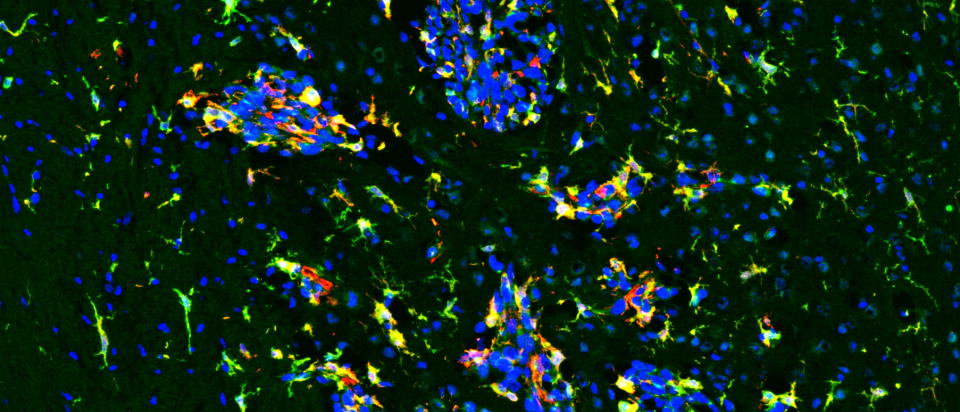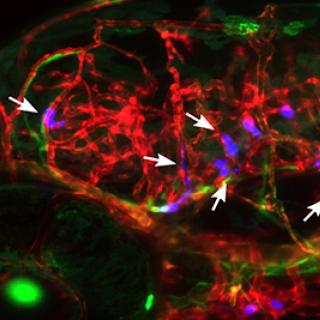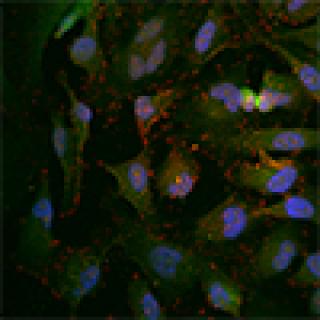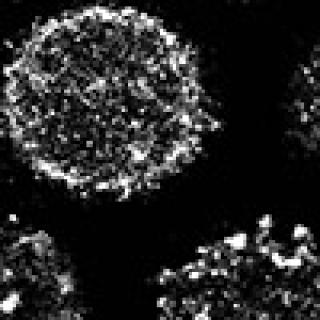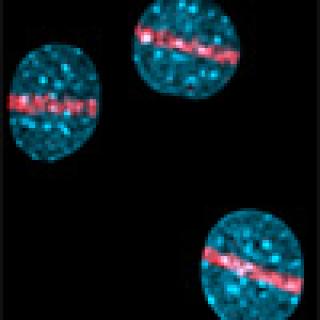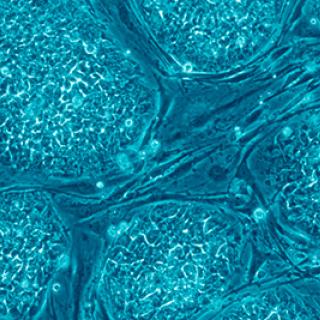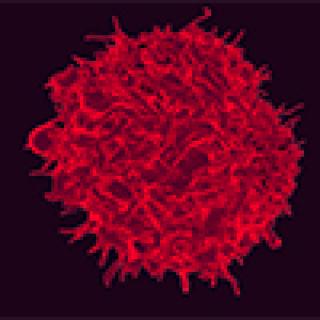News and Events
New Strategy Shows Promise Against Deadly Breast Cancer in the Brain
A new NIH study points to a promising strategy for treating aggressive breast cancer that spreads to the brain, a complication with few effective options. Learn how blocking a key brain cell survival pathway could open the door to future therapies.
Read MoreNeurofibromatosis type 1 patient attends Camp Fantastic for the first time
Thirteen-year-old Dom was diagnosed with neurofibromatosis type 1 at birth. Because of Dom’s diagnosis, he hasn’t always had the opportunity to do the things the average teenager does, but his first year at Camp Fantastic changed that. Camp Fantastic, an annual week-long camp for pediatric cancer patients and survivors, gave Dom the opportunity to try lots of new things and some familiar ones in a setting of support, safety and friendship.
Read MoreFDA grants breakthrough therapy designation for new CAR T-cell therapy for B-cell acute lymphoblastic leukemia
In August 2019, the U.S. Food and Drug Administration granted breakthrough therapy designation to an experimental immunotherapy being developed in the Center for Cancer Research (CCR) for the treatment of B-cell acute lymphoblastic leukemia (ALL), a type of blood cancer. The designation will advance CCR’s development and testing of an immunotherapy for children and young adults whose B-cell ALL is resistant to CD19-targeted immunotherapies.
Read MoreResearchers develop a new imaging technique to measure cancer metabolism
CCR researchers have developed a new technique to show metabolism from MRI images by reducing the amount of noise in those images, resulting in significantly improved quality. This breakthrough enables researchers to see biochemical processes, paving the way for a deeper understanding of tumors and potentially improved diagnosis and treatment.
Read MoreTumor cells in transparent fish reveal physical and molecular factors that determine metastasis sites
CCR researchers used zebrafish to discover that particular sites colonized by migrating tumor cells are determined by both the physical architecture of tissue and the cells’ molecular compatibility with their microenvironment.
Read MoreFDA grants breakthrough therapy designation of new TIL therapy for advanced cervical cancer
In May 2019, the FDA granted breakthrough therapy designation to a tumor-infiltrating lymphocyte (TIL) therapy technology known as LN-145 to treat advanced cervical cancer based on data presented by CCR collaborator Iovance Biotherapeutics.
Read MoreIn patients with severe chronic lymphocytic leukemia, B cells get stuck in hyperactive mode
Analyzing how cancer cells respond to stress signals could help clinicians assess the severity of disease in patients with chronic lymphocytic leukemia, according to new research from the Center for Cancer Research, Memorial Sloan Kettering Cancer Center and the National Heart, Lung and Blood Institute.
Read MoreLandmark discovery: H2AX as a sensor of DNA damage
William Bonner’s curiosity about histones led to the discovery that the protein H2AX is altered in response to harmful DNA damage called a double-strand break. This powerful tool has led to breakthroughs in both basic and clinical cancer research.
Read MoreNew mechanism for regulating differentiation discovered in human embryonic stem cells
Researchers in the Center for Cancer Research have discovered a new mechanism involving a nuclease complex called the RNA exosome that represses differentiation of human embryonic stem cells. This represents the first time this mechanism has been studied in these cells.
Read MoreGene-regulating microRNAs gain control over hundreds of new genes with common sequence modification
MicroRNAs have an enormous influence over what happens inside cells. By blocking the activity of specific sets of genes, they help control virtually every known biological pathway and process. Disruptions in microRNAs have been linked to many diseases, and understanding how these molecules function, which genes they control and how they themselves are regulated are high priorities in cancer research.
Read MoreGastrointestinal tumors harbor T cells that recognize patients’ unique tumor antigens
CCR scientists, led by Steven A. Rosenberg, M.D., Ph.D., have determined that many common gastrointestinal tumors bear mutations capable of eliciting an immune response, suggesting that immunotherapy could be an effective way to treat these common cancers.
Read More